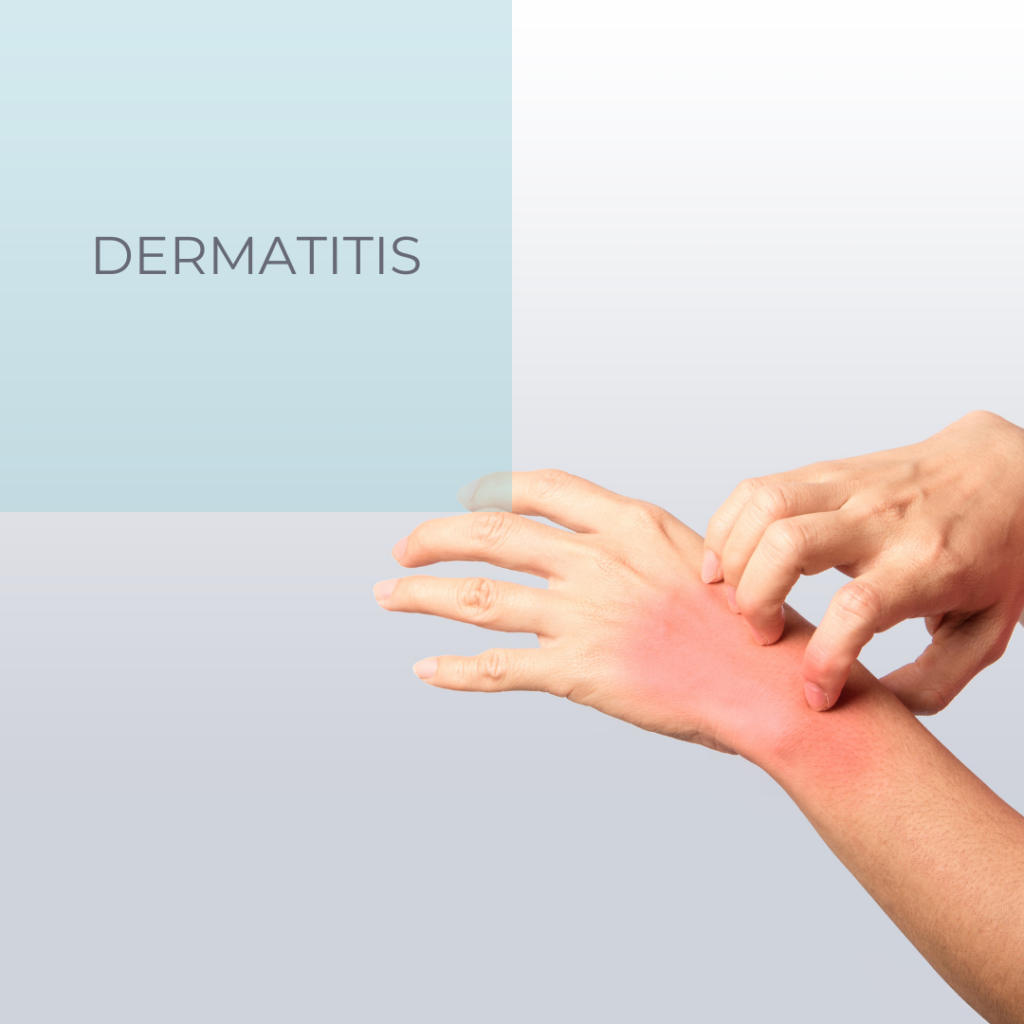These B vitamins and their derivatives work synergistically in the body to support a wide range of biochemical and physiological processes.
- Thiamine (B1) – Improves your immune system, and helps convert fat and carbs into energy.
- Niacinamide (B3) – Eases inflammation, and can help maintain healthy looking skin.
- Riboflavin (B2) – Increases metabolism and supports your immune system.
- Dexpanthenol (B5) – Essential for maintaining healthy skin, hair, eyes, and liver.
- Pyridoxine (B6) – Promotes red blood cell production and converts food into energy.
By working together, these vitamins ensure that the body’s metabolic processes run smoothly, support the health of various tissues and organs, and maintain overall well-being.

How do they benefit your body?
- Thiamine (B1) – Essential for glucose metabolism and plays a key role in nerve, muscle, and heart function.
- Niacinamide (B3) – Supports metabolism, DNA repair, and cell differentiation. It’s also known for its benefits in skincare, particularly for reducing inflammation and hyperpigmentation.
- Riboflavin (B2) – A coenzyme form of vitamin B2, essential for energy production and the metabolism of fats, drugs, and steroids. It also supports skin, eye, and nerve health.
- Dexpanthenol (B5) – A derivative of pantothenic acid that is used in skin care products for its moisturizing and healing properties.
- Pyridoxine (B6) – Important for amino acid metabolism, neurotransmitter synthesis, and the production of red blood cells. It also plays a role in cognitive development and immune function.
How do they interact and complement each other?
Energy Metabolism
Thiamine (B1) – Essential for converting carbohydrates into energy. It acts as a coenzyme in the metabolism of glucose.

Riboflavin (B2) – Important for the metabolism of fats, proteins, and carbohydrates. It helps in the production of ATP (adenosine triphosphate), the primary energy carrier in cells.
Niacinamide (B3) – Involved in the conversion of food into energy. It forms coenzymes NAD and NADP, which are crucial in cellular metabolism.
Pyridoxine (B6) – Plays a role in protein metabolism and the creation of neurotransmitters and red blood cells. It is also involved in glycogenolysis, the process of converting glycogen to glucose for energy.
Nervous System Health
Thiamine (B1) – Necessary for the proper function of nerves and muscles.
Riboflavin (B2) – Supports the health of the nervous system and protects against oxidative stress.
Niacinamide (B3) – Can improve symptoms of depression and anxiety due to its role in neurotransmitter synthesis.
Pyridoxine (B6) – Crucial for the synthesis of neurotransmitters, including serotonin, dopamine, and gamma-aminobutyric acid (GABA).
Skin Health

Niacinamide (B3) – Enhances the barrier function of the skin, improves texture, and reduces the appearance of fine lines and hyperpigmentation.
Dexpanthenol (B5) – Known for its moisturizing properties, it helps to repair the skin barrier and promotes wound healing.
Riboflavin (B2) – Supports the maintenance of healthy skin.
Immune Function
Pyridoxine (B6) – Vital for proper immune system function. It assists in the production of antibodies and immune cells.
Red Blood Cell Formation
Pyridoxine (B6) – Essential for the synthesis of hemoglobin, the protein in red blood cells that carries oxygen.
DNA Repair and Synthesis
Niacinamide (B3) – Plays a key role in the repair and synthesis of DNA, protecting cells from damage and mutations.
A deficiency in these B vitamins can lead to a variety of health issues, as each vitamin plays a crucial role in maintaining bodily functions.
Deficiencies and associated health problems:

Thiamine (B1)
- Beriberi – A condition affecting the cardiovascular, muscular, gastrointestinal, and nervous systems. Symptoms include weakness, pain, irregular heartbeats, and in severe cases, heart failure.
- Wernicke-Korsakoff Syndrome – A severe neurological disorder often associated with chronic alcoholism. It can cause confusion, memory loss, and coordination problems.
Niacinamide (B3)
- Pellagra – Characterized by the “three Ds”: dermatitis, diarrhea, and dementia. If left untreated, pellagra can be fatal.
- Skin Issues – Dermatitis and hyperpigmentation can occur.
Riboflavin (B2)

- Ariboflavinosis – Symptoms include sore throat, redness and swelling of the lining of the mouth and throat, cracks or sores on the outsides of the lips (cheilosis) and at the corners of the mouth (angular stomatitis), inflammation and redness of the tongue (magenta tongue), and a moist, scaly skin inflammation (seborrheic dermatitis).
- Eye Issues – Sensitivity to light, itchy and watery eyes, and, in severe cases, cataracts.
Dexpanthenol (B5)
- Although rare, deficiency can lead to fatigue, depression, irritability, and various skin conditions.
Pyridoxine (B6)
- Microcytic Anemia – Characterized by smaller than normal red blood cells, leading to symptoms of fatigue, weakness, and shortness of breath.
- Dermatitis – Skin rashes and scaling on the lips and around the eyes, nose, and mouth.
- Neurological Issues – Including irritability, depression, confusion, and in severe cases, convulsions.
- Weakened Immune System – Leading to increased susceptibility to infections.
Each vitamin’s deficiency can cause specific health issues, and deficiencies in multiple B vitamins can have compounded effects, disrupting multiple bodily systems and functions. It’s essential to maintain a balanced diet to ensure adequate intake of these crucial nutrients.
Dietary sources of each of these B vitamins:

Thiamine (B1)
- Whole grains – Brown rice, oatmeal, whole wheat bread
- Legumes – Lentils, black beans, and navy beans
- Nuts and seeds – Sunflower seeds, macadamia nuts
- Meat – Pork, beef liver
- Fish – Trout, tuna
Niacinamide (B3)

- Meat – Chicken, turkey, pork, beef
- Fish – Tuna, salmon
- Whole grains – Brown rice, barley
- Legumes – Peanuts, lentils
- Seeds – Sunflower seeds
- Dairy – Milk, yogurt
Riboflavin (B2)

- Dairy products – Milk, cheese, yogurt
- Eggs
- Lean meats – Beef, lamb, pork
- Organ meats – Liver, kidneys
- Green leafy vegetables – Spinach, broccoli
- Fortified cereals and grains
Dexpanthenol (B5):

- Meat – Chicken, turkey, beef
- Fish – Salmon, trout
- Whole grains – Brown rice, whole wheat bread
- Legumes – Lentils, peas
- Vegetables – Avocado, sweet potatoes, mushrooms
- Dairy products – Milk, yogurt
Pyridoxine (B6)

- Meat – Chicken, turkey, beef, pork
- Fish – Salmon, tuna
- Whole grains – Brown rice, wheat germ
- Legumes – Chickpeas, soybeans
- Vegetables – Potatoes, bananas, spinach
- Nuts and seeds – Sunflower seeds, pistachios
- Fruits – Avocado, bananas
Incorporating a variety of these foods into your diet can help ensure adequate intake of these essential B vitamins. Find out about all the supplements available to you at our Intramuscular Vitamins page. Contact us to get help choosing the right supplement for you or book your shot today.